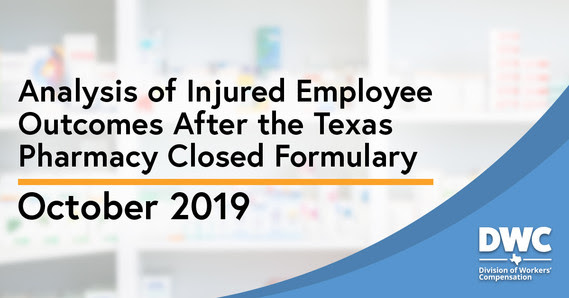

Research Group Releases Pharmacy Formulary Report
The Research and Evaluation Group has released a report on Texas pharmacy closed formulary outcomes. This study looks at injured employee outcomes such as return-to-work rates and health outcomes since the formulary was implemented.
Need just the key findings? Check the TDI website for our new snapshot tool on the pharmacy formulary report.



















